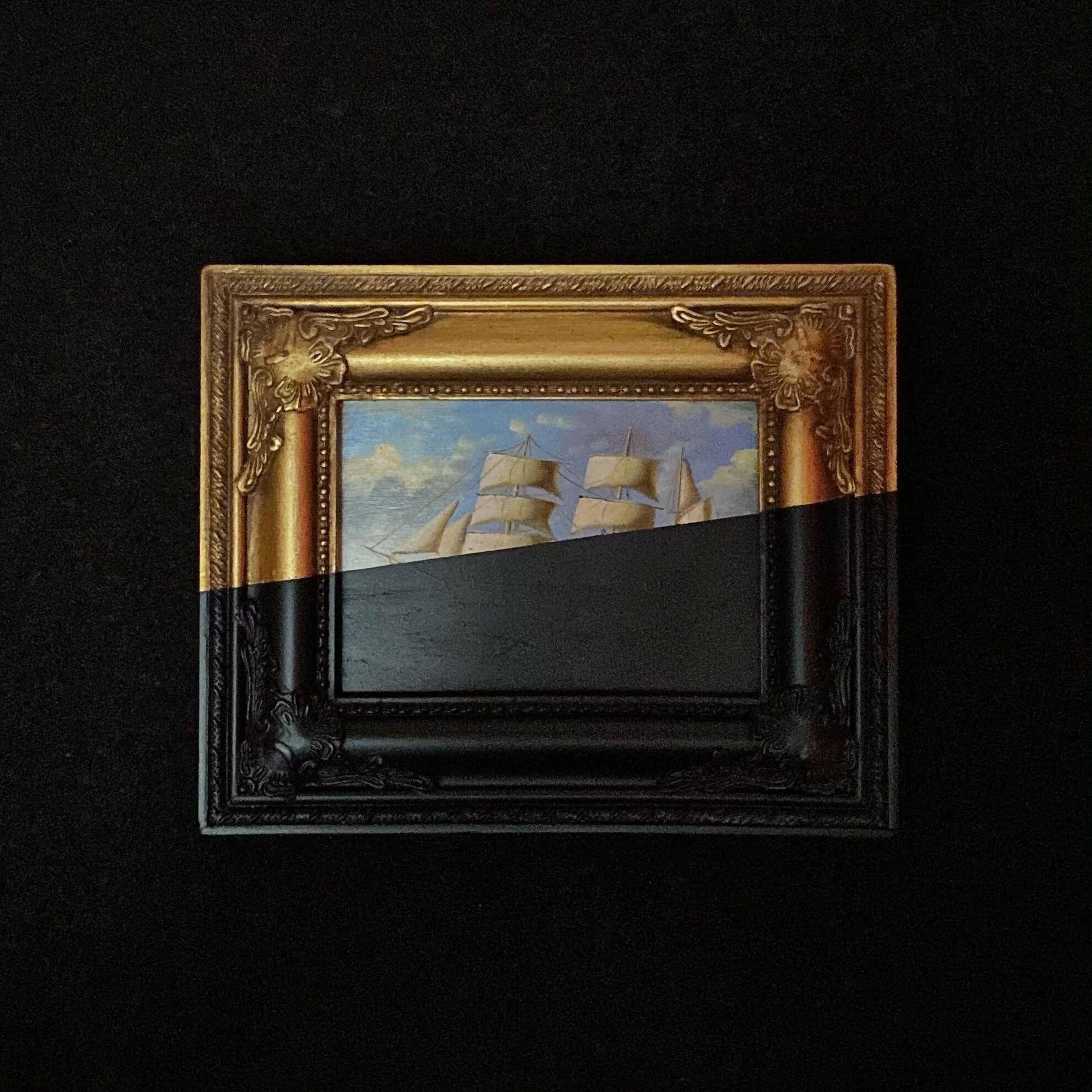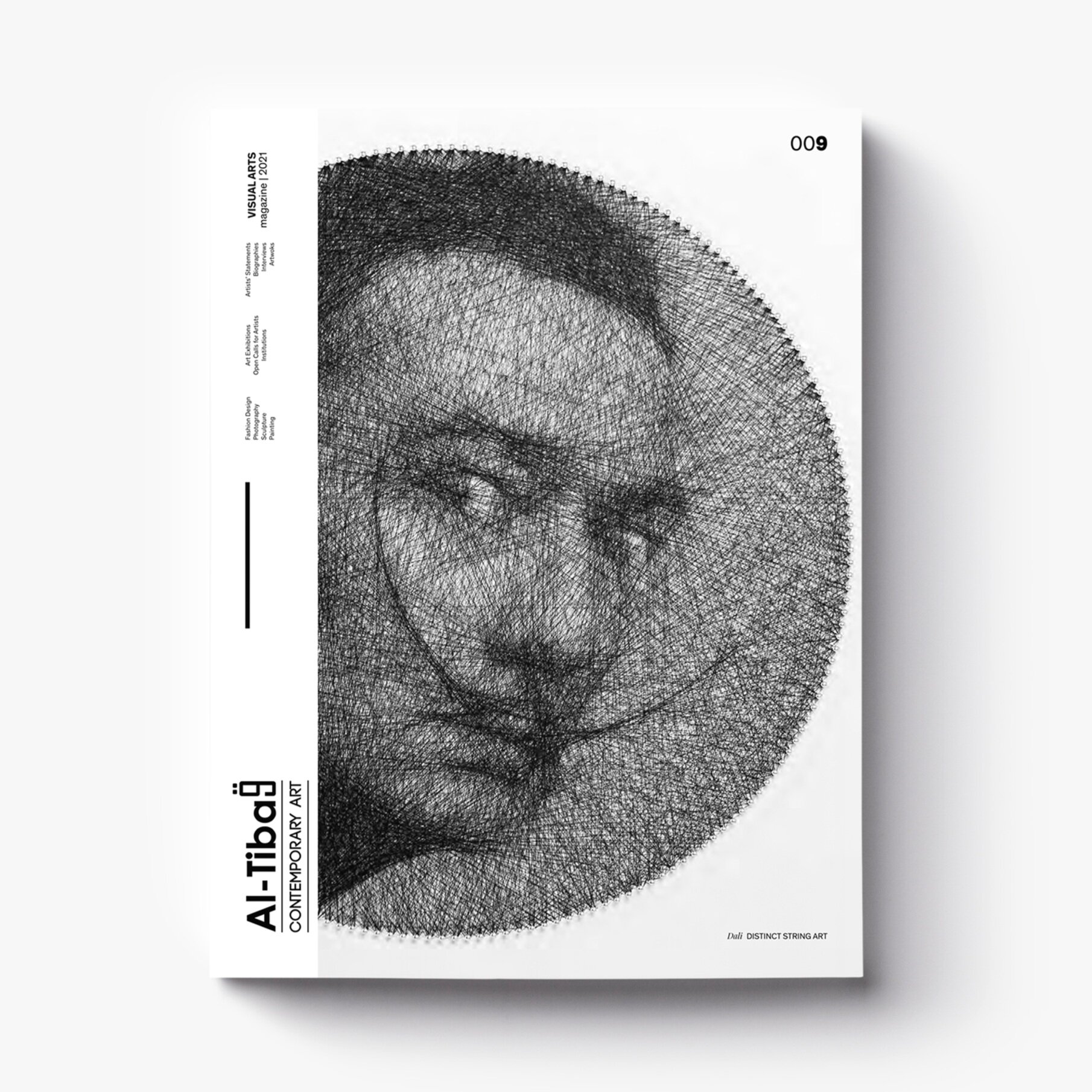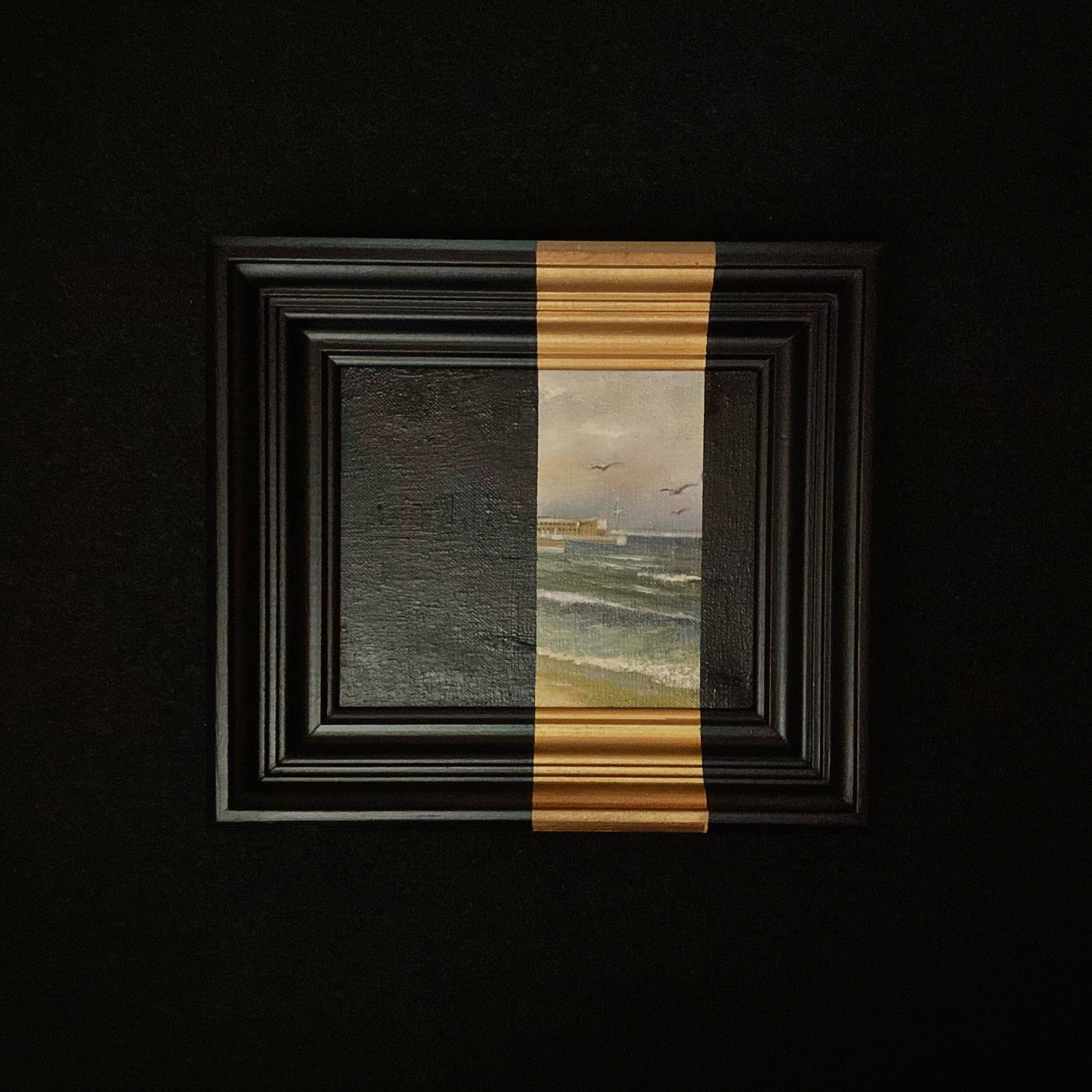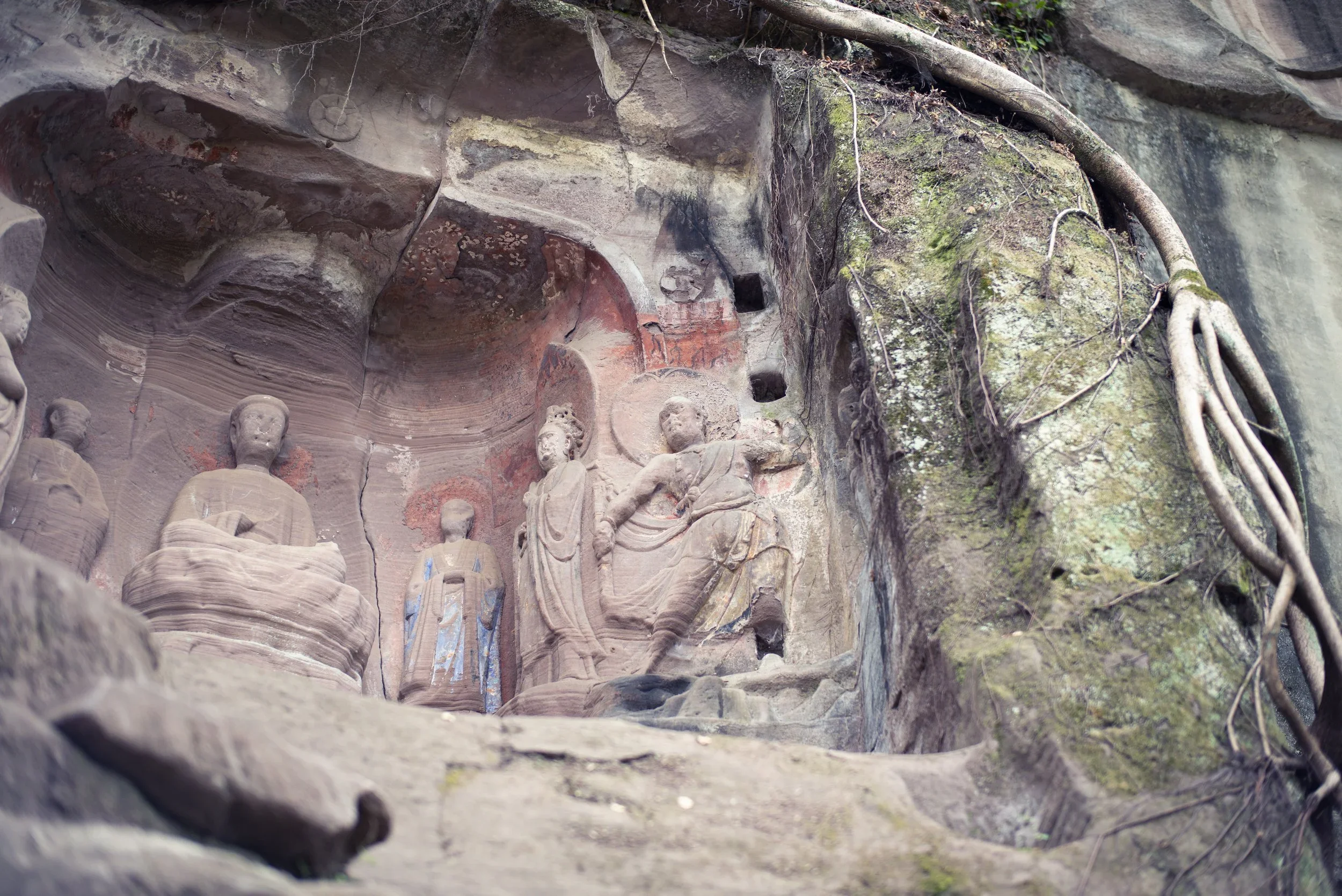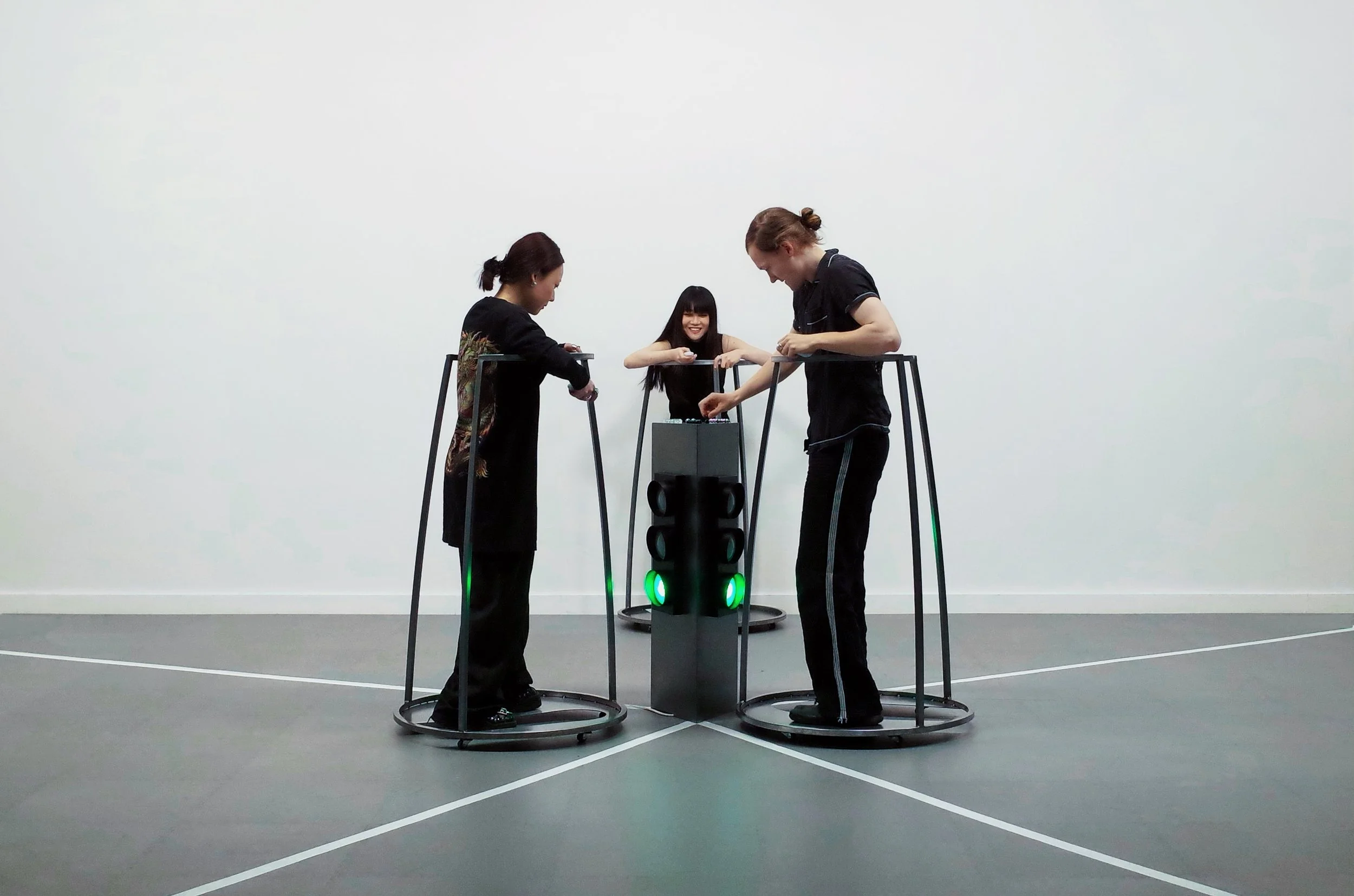10 Questions with Sebastian Mueller-Soppart
ISSUE09 Art Magazine | Featured Artist
Sebastian is a former advertising executive who held global creative director positions in the US, Canada, Brazil, Mexico, and Germany. With a nagging desire to leave the corporate world in 2020, he started calling himself an artist and hasn't looked back since. Sebastian studied visual communication in Paris, has won his obligatory Lion in Cannes, and now lives between Chicago and Düsseldorf.
marcel.pt/soppart | @sopp.art
ARTIST STATEMENT
“I SEE BEAUTY. I see it in almost everything. Mundane details, hidden in plain sight that escape most people. The thought that "If you're not seeing something interesting, you are walking too fast" is a notion I hold dear. It is a poignant reminder of our fast-paced, digitally hijacked existences. BUT, not everything is beautiful. Some stuff we decorate our walls with is just mass-manufactured garbage, and its only way to avoid landfills is by giving it a second chance through an artistic evolution of sorts. In the paintings I upcycle, I primarily look for a genuine craft that holds up while concealing the sections that pain my eyes.
Needless to say, the work has an intentional criticism towards the impact we, as humans, have on the planet, our generation's out-of-control consumerism, and the shared concern of how effective recycling really is.
But how much weight does an artist's interpretation of their own work really hold? It's more about the audience's take-away, which has been diverse and imaginative.” - Sebastian Mueller-Soppart
Gloede © Sebastian Mueller-Soppart
INTERVIEW
First of all, tell our readers how you became an artist. You are a former advertising executive that decided to leave your corporate position in favor of a career as an artist. How did you convince yourself to take this leap of faith?
As a creative director, I drifted all kinds of cultural currents while always keeping an eye on the art world. Both have a tremendous influence on the creative process inside an agency, and sometimes, we sold work that really WAS art, but obviously did not receive any recognition as such. So yes, I was more of a corporate whore than an artist, but the leap of faith to become one was not too sudden, since I upcycled my first painting in 2011. To my best knowledge, I was the first to have the idea of adding simple, geometric shapes covering up the original underneath. Feeling that intellectual ownership gave me the confidence to explore this space further. Meanwhile, I was getting more and more annoyed by the senselessness of spending my time supporting brands, that I just had to make a change.
Is there anything you wish you knew about the contemporary art world before becoming an artist yourself? How different is this world from the corporate and advertising environment?
What I didn’t see coming is how much I hate self-promotion. Unlike most artists, I thought I was good at marketing, but didn’t quite realize how much I’d have to share of myself versus just the product of my practice. I am still terrible at it and uncomfortable with it. I really don’t want to become a dirty narcissist and therefore have to figure out a way so I can look at myself in the mirror and not be disgusted.
50K#4 © Sebastian Mueller-Soppart
Do you miss anything about your former career or life? And how did your life change once you decided to be an artist full time?
Yes, I miss the money. Not that I need much, but damn, making a living with art is hard. A lot of people applauded my decision, but only a very small percentage wants or can spend money. To have success, like in a lot of industries, the right connections are critical. And making a radical career change, as I did, is a bit nuts since I have no new network to rely on. Luckily, social media has worked well for me because going the traditional route to dream of a life-changing gallery representation would not make sense in my case. I am a middle-aged, white male. Boring.
In your work, you take found paintings, and you modify and upcycle them. The ultimate goal is to reflect on the impact we have on the Planet. How did you come up with this idea?
While having spent a lifetime selling people stuff they don’t need, I always lived with few belongings myself. I hate throwing things away and always preferred good quality antiques over cheap, new furniture, as an example. And then there’s our suffering planet. We’re all aware that our insatiable appetite for more and the greed that goes with it is to blame. So, given these personal preferences and values, using old paintings as a canvas for new expressions, like, loss-of-habitat, is an idea that feels inherently personal.
Whitewashed © Sebastian Mueller-Soppart
Whitewashed #2 © Sebastian Mueller-Soppart
What is your creative process like? How do you choose the paintings to modify, and how do you work on them?
I love the process, and it is how you’d expect it to be. I stroll around flea markets or visit estate sales. What’s crazy is how wildly differently old paintings are valued. Some vendors are just happy to get rid of them, while others ask for ridiculous sums of money. It’s really quite amusing, and I enjoy the little haggling once in a while.
The paintings I buy need to either inspire an idea on the spot or have an inherent quality about them, so that I enjoy pulling them out later to come up with a concept. I usually use spray cans but have started to shift towards eco-friendly solutions.
How important are environmental-related themes to your work? What do you focus more on, and what would you like the public to take away from your work?
My plan is to focus exclusively on environmental themes. Sure, there might always be pieces about social criticism, but my heart beats faster when thinking about pollution, deforestation, etc. than, say, equal rights among homo sapiens. Historically speaking, I believe the latter is moving in the right direction, while the former is headed straight south.
Apart from upcycling and recycling, did you discover any new concept or practice that can be beneficial for the Planet to lower our footprint on Nature?
Within my artistic practice? No. But I’ve reached out to various NGOs, like tinyforests.de , to offer my services. Clearly, I do want to spend the majority of my time growing as an artist, but I also have an urge for a more direct, positive impact that I can have on the environment. I want to get my hands dirty with soil, not just paint, so one day I can live off the land with enough know-how in the areas of permaculture and natural building practices.
Over the past year, we have witnessed many changes in the art world and our lives in general. Do you think this experience will have a long-lasting impact on the Art World?
Totally. I see two major forces at play. One, artists no longer have to make an impression on anyone who is part of this elite club that we call Art World to get noticed. Thanks to technology, all creators can now reach audiences directly. And second, NFTs. I mean, I am very torn about what’s going on. On the one hand, having the blockchain to take ownership of digital art viable is amazing. But the energy consumption issues around it are very concerning, just like the bullshit that comes with attracting crypto opportunists.
Did you take part in any online exhibitions recently? And what do you think of them? Good opportunities or just a temporary trend?
I think online exhibitions, like what we’ve seen over the past 18 months, will subside in step with Covid. However, I believe that new online marketplaces will continue to pop up and evolve into something smart and more engaging. The experience of buying art online today is rather rudimentary, but I am sure the future will be exciting.
Finally, what are you working on now, and what are your plans for the future? Anything exciting you can tell us about?
First of all, thanks for the excellent questions and opportunity. As part of figuring out my own path, I started to create an artist’s collective with members whose work explores the various issues related to climate change. My hope is to raise more environmental awareness as a group, consisting of some super talented and radical minds.

